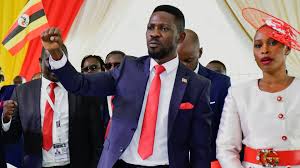
Uganda is preparing for another high-stakes presidential election in January 2026, setting the stage for a fierce contest between incumbent President Yoweri Museveni, who has ruled for nearly four decades, and his long-time opponent, Robert Kyagulanyi, popularly known as Bobi Wine.
With over three-quarters of the population under the age of 35, the outcome of this election could shape the country’s democratic trajectory for years to come.
Last week, Uganda’s electoral commission officially validated Museveni’s candidacy, followed by confirmation of Bobi Wine’s bid. Museveni, 79, has dominated Ugandan politics since seizing power in 1986, initially by force, overthrowing Milton Obote.
In 2017, lawmakers removed the presidential age limit, enabling him to extend his tenure. As leader of the ruling National Resistance Movement (NRM), he called on supporters to back him, stating his goal was to “convince the Ugandan people of what has been achieved in the past and what we plan to do now.”
Museveni’s administration emphasizes wealth creation, infrastructure development, crime reduction, education, health, water provision, and anti-corruption initiatives.
However, critics highlight persistent allegations of electoral irregularities and army involvement in politics, particularly under the leadership of Museveni’s son, Muhoozi Kainerugaba, who is widely seen as a potential successor.
Bobi Wine, 43, a former musician turned politician, has emerged as a prominent voice for Uganda’s youth and urban working classes.
Leading the National Unity Platform (NUP), he maintains the largest opposition bloc in the National Assembly and has built a broad base of support among younger voters seeking political change.
In 2021, he secured 35% of the vote, challenging Museveni’s 58%, but alleged irregularities, including ballot manipulation and intimidation, marred the process.
Ahead of the 2026 election, Bobi Wine has warned of a tense political climate, citing threats from security forces under Muhoozi Kainerugaba. For Uganda’s young population, this election represents a pivotal moment—a choice between continuity under Museveni and potential reform under Bobi Wine.
The coming months are expected to be a test of both democratic resilience and the strength of opposition in a nation long dominated by a single leader.



